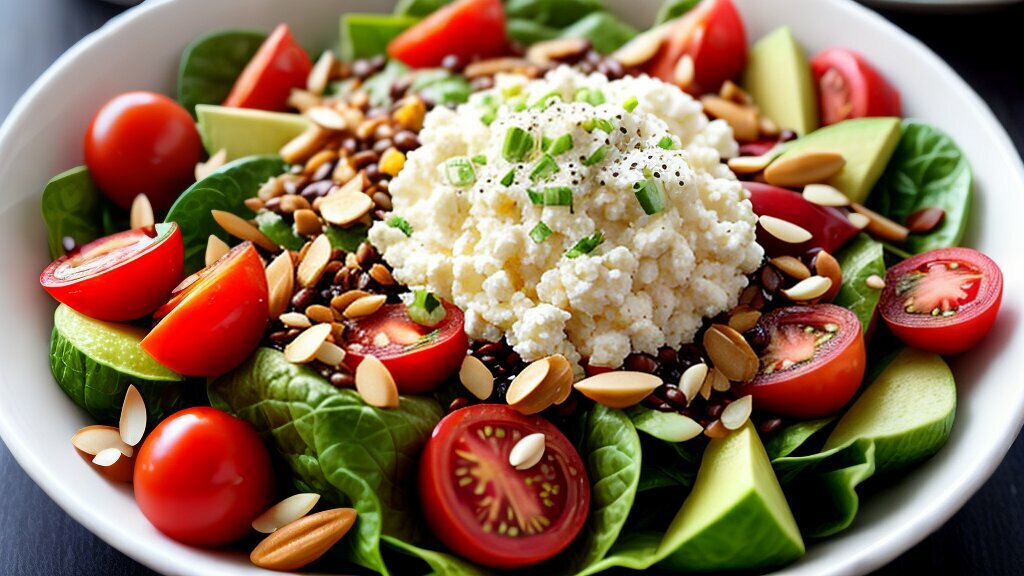Looking for healthy vegetarian meals that are both nutritious and delicious? Consider trying out low-carb vegetarian recipes. Not only can these dishes provide you with the necessary nutrients, but they can also assist in managing your weight and reducing the risk of chronic diseases.
With the rise of the vegetarian and vegan movement, it’s becoming easier to find options that cater to all kinds of dietary needs. From meatless low-carb recipes to vegetarian keto recipes, there’s something for everyone.
Key Takeaways:
- Low-carb vegetarian recipes are a great way to stay healthy and manage weight.
- There are a variety of easy-to-make low-carb vegetarian recipes for different meals of the day.
- It’s important to use low-carb ingredients such as tofu, tempeh, leafy greens and low-carb vegetables.
Exploring Low-Carb Vegetarian Options
Adopting a low-carb vegetarian diet doesn’t have to be complicated or restrictive. There are plenty of delicious and healthy options to choose from that will keep you feeling satisfied and energized throughout the day.
Here are some easy-to-make low-carb vegetarian recipes for different meals of the day:
Breakfast
Start your day off with a protein-packed breakfast that will keep you feeling full until lunchtime. Try making a veggie-packed tofu scramble, featuring low-carb vegetables like spinach, mushrooms, and bell peppers. Alternatively, whip up some almond flour pancakes topped with fresh berries and unsweetened coconut cream.
Lunch
A filling and nutritious lunch can be as simple as a salad. Load up on leafy greens, crunchy veggies, and a source of protein like tofu or tempeh. Make a homemade vinaigrette dressing with olive oil, vinegar, and Dijon mustard for added flavour. You can also wrap your favourite salad ingredients in a low-carb tortilla for a portable and satisfying meal.
Dinner
Dinner is the perfect opportunity to get creative with low-carb vegetarian recipes. Try a cauliflower crust pizza with your favourite toppings, or a spaghetti squash stir-fry with tofu and mixed vegetables. You can also swap out traditional pasta for zucchini noodles or spaghetti squash for a low-carb alternative.
Snacks
Snacking can be a challenge when following a low-carb diet, but there are plenty of options to choose from. Try celery sticks with almond butter, cucumber slices with hummus, or a handful of nuts for a protein-rich snack.
Remember, preparing meals in advance can be a game-changer when it comes to sticking to a low-carb vegetarian diet. Spend some time each week meal prepping and experimenting with different recipes to find what works best for you.
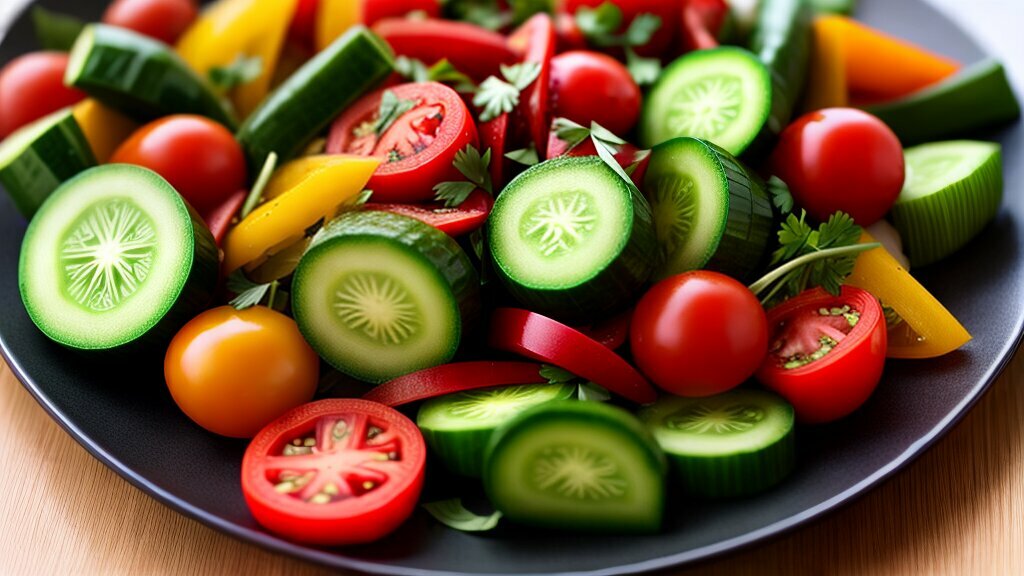
Incorporating Low-Carb Ingredients
When it comes to creating tasty and nutritious low-carb vegetarian recipes, it’s important to incorporate the right ingredients. There are many plant-based foods that are both low in carbs and rich in essential nutrients, making them an excellent addition to any diet.
| Low-Carb Ingredients | Nutritional Benefits |
|---|---|
| Tofu | Rich in protein and calcium for strong bones and muscles. |
| Tempeh | A good source of plant-based protein and probiotics for gut health. |
| Leafy Greens | Low in carbs and high in vitamins, minerals, and antioxidants for overall health. |
| Low-Carb Vegetables | Include cauliflower, zucchini, bell peppers, and broccoli for added fiber, vitamins, and minerals. |
There are many easy ways to incorporate these ingredients into your meals. Try swapping out traditional pasta for zucchini noodles or using tofu or tempeh in stir-fries and salads. Leafy greens and low-carb vegetables can be added to almost any dish, from omelets to soups and stews.
By experimenting with different low-carb ingredients, you can create a variety of delicious and healthy vegetarian meals that are sure to satisfy.
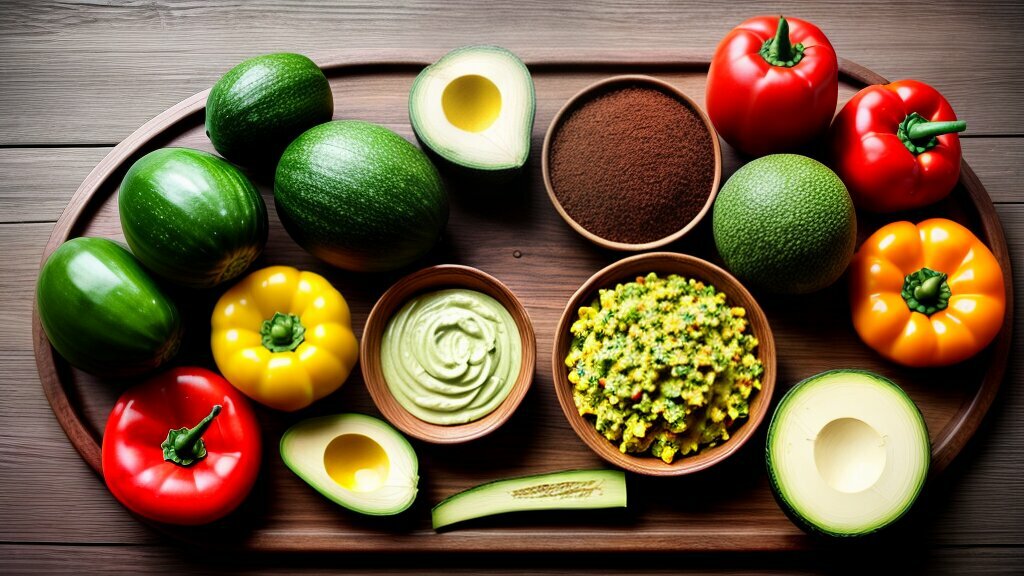
Benefits of Low-Carb Vegetarian Eating
If you’re looking for a healthy and sustainable way to manage your weight and promote overall wellness, adopting a low-carb vegetarian diet could be the answer. Not only can it help you shed excess pounds, but it can also reduce your risk of chronic conditions such as heart disease, diabetes, and certain cancers.
Research has shown that low-carb diets can be just as effective as low-fat diets for weight loss, with the added bonus of improving cholesterol and blood sugar levels. Vegetarian diets, which are naturally low in saturated fat and high in fibre and antioxidants, can further enhance these benefits.
By choosing to focus on plant-based proteins and healthy fats, you can ensure that you’re getting all the nutrients your body needs without the added sugars and refined carbs found in many conventional diets. This can translate into better blood sugar control, improved digestion, and a reduced risk of inflammation and oxidative stress.
Whether you’re a lifelong vegetarian or simply looking to reduce your meat consumption, incorporating low-carb vegetarian meals into your diet can have a significant impact on your health and well-being. So why not give it a try?
Interesting facts:
- A low-carb vegetarian diet has been shown to be just as effective as a low-carb meat-based diet for weight loss.
- Eating a plant-based diet has been linked to a reduced risk of chronic diseases such as heart disease, diabetes, and certain cancers.
- A low-carb vegetarian diet can provide all the essential nutrients your body needs without the added sugars and refined carbs found in many conventional diets.
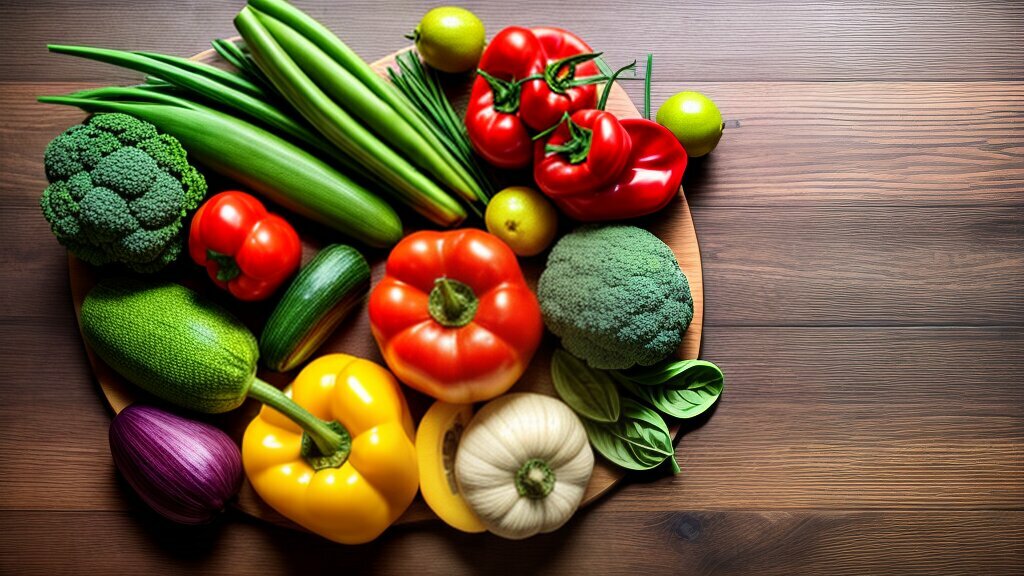
Tips for Success
Following a low-carb vegetarian diet may seem daunting at first, but with the right mindset and preparation, you can succeed in reaching your health goals. Here are some practical tips to help you on your journey:
- Meal planning: Plan your meals for the week ahead of time. This will help you stay on track and avoid making impulsive food choices.
- Grocery shopping: Make a shopping list and stick to it. Avoid buying processed foods and focus on whole, nutrient-dense foods.
- Balanced nutrient intake: Make sure you are getting enough protein, healthy fats, and fiber in your diet. Incorporate a variety of low-carb vegetables and plant-based proteins such as tofu, tempeh, and legumes.
- Experiment with recipes: Don’t be afraid to try new recipes and experiment with different flavors and textures. Check out vegetarian cookbooks or search for low-carb vegetarian recipes online for inspiration.
- Stay motivated: Remember why you started and stay focused on your goals. Celebrate your progress and don’t be too hard on yourself if you slip up occasionally.
By following these tips, you can set yourself up for success on your low-carb vegetarian journey.
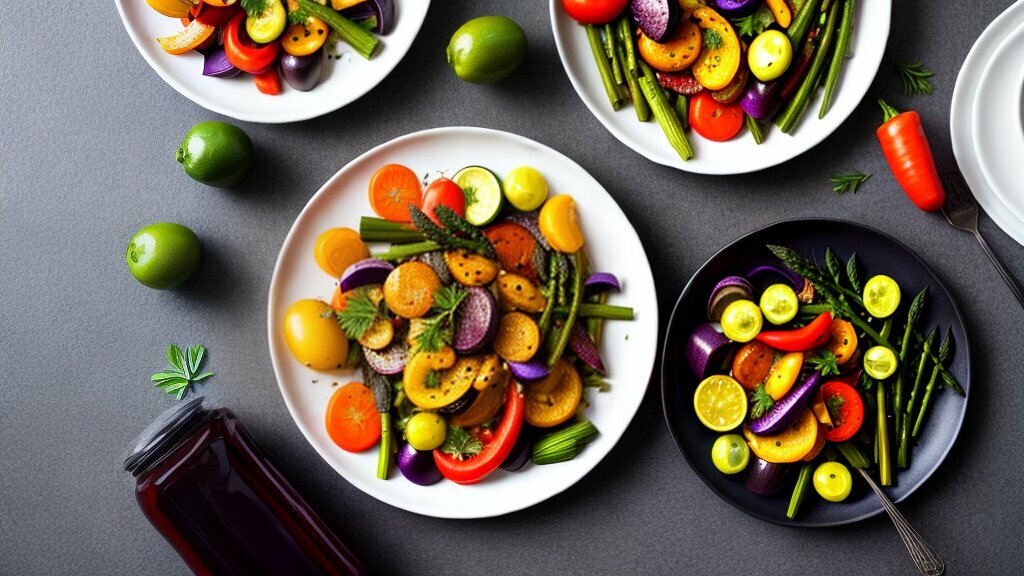
In conclusion:
Low-carb vegetarian recipes are a fantastic option for anyone looking to improve their health and nutrition. By incorporating more plant-based, low-carb meals into your diet, you can experience a range of benefits, from weight loss to improved energy levels and reduced risk of chronic diseases.
Throughout this article, we’ve explored some easy-to-make low-carb vegetarian recipes that are perfect for any time of day. We’ve also discussed the importance of incorporating low-carb ingredients like tofu, tempeh, and leafy greens into your cooking, as well as tips for success when following this type of eating plan.
Remember, the key to success when adopting a low-carb vegetarian diet is to find what works best for you. Experiment with different recipes and ingredients until you discover a combination that satisfies your taste buds and your nutritional needs.
If you’re new to low-carb vegetarian eating, don’t be discouraged by the initial adjustment period. With a little bit of planning and a lot of perseverance, you can make this way of eating a sustainable and enjoyable part of your life.
FAQ
Q: What are the benefits of low-carb vegetarian eating?
A: Low-carb vegetarian eating offers various benefits, including weight loss, improved overall health, and reduced risk of certain diseases. By focusing on nutrient-rich plant-based foods and minimizing carbohydrates, individuals can achieve their health goals while enjoying delicious and satisfying meals.
Q: Are low-carb vegetarian recipes suitable for weight loss?
A: Yes, low-carb vegetarian recipes can be a great option for weight loss. By incorporating nutrient-dense ingredients and reducing the intake of carbohydrates, individuals can create meals that are lower in calories while still providing essential nutrients. It is important to consider portion sizes and total calorie intake when using low-carb vegetarian recipes as part of a weight loss plan.
Q: Can I follow a low-carb vegetarian diet if I have dietary restrictions or allergies?
A: Absolutely! Low-carb vegetarian recipes can be tailored to accommodate various dietary restrictions and allergies. There are plenty of plant-based options available that are gluten-free, dairy-free, or nut-free. By substituting ingredients and using alternative cooking methods, you can still enjoy a diverse range of low-carb vegetarian meals.
Q: Are there specific low-carb ingredients I should include in my vegetarian recipes?
A: Yes, there are several low-carb ingredients that work well in vegetarian recipes. Some examples include tofu, tempeh, leafy greens, low-carb vegetables like cauliflower and zucchini, and healthy fats like avocado and nuts. These ingredients offer a good balance of nutrients while keeping the carb content low.
Q: How can I start incorporating low-carb vegetarian recipes into my diet?
A: To start incorporating low-carb vegetarian recipes into your diet, begin by gradually replacing higher-carb ingredients with lower-carb alternatives. Experiment with different recipes and meal options to find what works best for you. Additionally, focus on meal planning and preparation to ensure you have nutritious and satisfying meals readily available.
Q: Can I still get all the necessary nutrients on a low-carb vegetarian diet?
A: Yes, it is possible to get all the necessary nutrients on a low-carb vegetarian diet. By including a variety of plant-based foods like legumes, whole grains, fruits, vegetables, and plant-based protein sources, you can meet your nutrient needs. It is also important to ensure you are getting enough vitamins and minerals through supplements or fortified foods if necessary.
